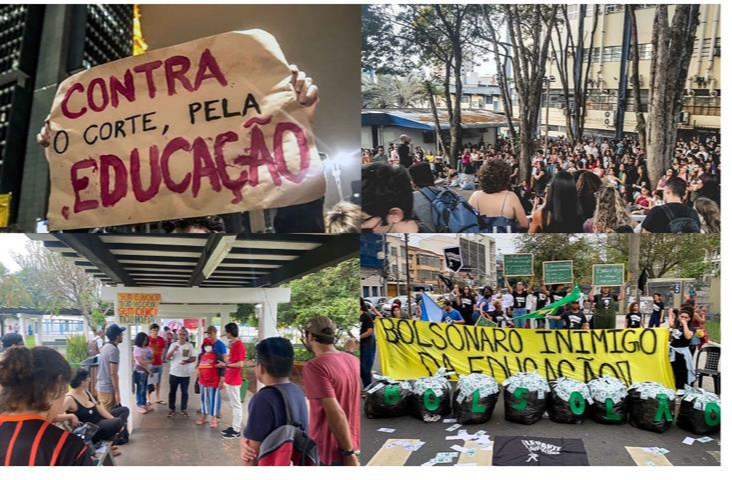
Less than 15 days before the second round of the general elections in Brazil, the streets of the South American giant were filled with young people protesting against the budget cuts to education announced earlier this month by the government presided over by Jair Bolsonaro.
By Maria Josefina Arce
Less than 15 days before the second round of the general elections in Brazil, the streets of the South American giant were filled with young people protesting against the budget cuts to education announced earlier this month by the government presided over by Jair Bolsonaro.
Reports state that in the last few hours mass demonstrations were held in 21 states and in the Federal District.
The announced cut is 460 million dollars, which, according to the demonstrators, jeopardizes the operation of educational institutions.
Bruna Brelaz, president of the National Union of Students, stated that "it is unacceptable that the institutions live constant cuts, without a project of the ministry and the government that understands them as strategic for the development of the country."
Since Bolsonaro assumed the presidency, in January 2019, there has been a constant decrease in the resources allocated to this area, which has seen a parade of ministers pass by, who either did not develop any strategy in favor of education or dismantled already existing policies.
According to analyses by research centers, under the Bolsonaro government there has been a 94% reduction in investments earmarked for federal universities in the last four years.
In addition, at the beginning of the year, the diversion of resources from the Ministry of Education for political favors came to light, a scandal that has splashed the current tenant of the Planalto Palace.
Education has been attacked by the current president, its quality has been deteriorating and the possibilities for Brazilians to access this essential human right, especially for the poorest sectors, have been diminishing. Bolsonaro has rolled back the progress made by the Workers' Party governments.
When Luiz Inácio Lula Da Silva came to power in 2003, a policy of allocating more resources and expanding access, especially to universities, was implemented. Thus, new federal centers of higher education were created.
Private universities were granted tax exemptions in exchange for partial or full scholarships for a certain number of students, while a government-guaranteed loan system was created.
Bolsonaro has compromised the future of children and young people, has denied many the possibility of broadening their prospects, improving their living conditions and contributing to Brazil's development.

